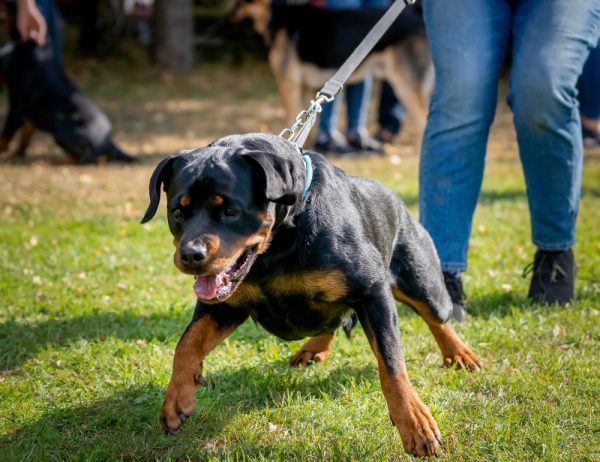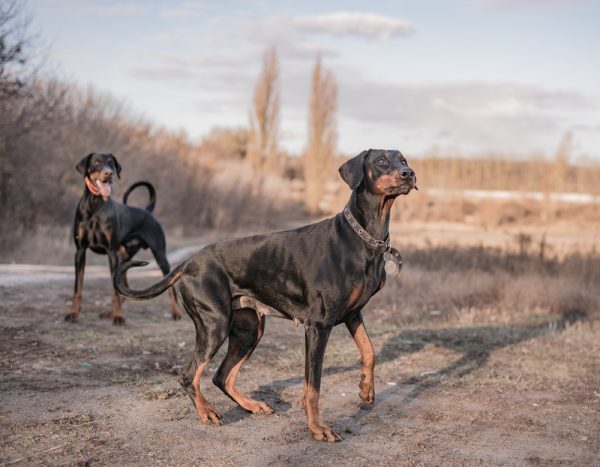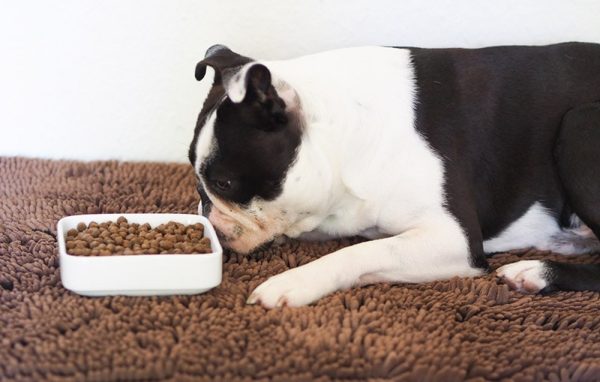In this article
A cough is a cough, right? There are actually many kinds of coughs in dogs, which is important to note, as different kinds of coughs need different kinds of treatments. Two of the most common coughs in canines stem from kennel cough and a collapsing trachea. While they may sound alike, they are quite dissimilar, requiring different methods to treat and manage them.
Let’s look at kennel cough and collapsing trachea to help you distinguish the cause of your dog’s cough.

At a Glance
- Contagious
- Any breed
- Sudden onset harsh cough often followed by retch or bringing up white froth/foam
- Often shows up after boarding, grooming, or socialization with other dogs
- Gets better within a couple of weeks
- Not contagious
- More common in toy breeds such as Yorkshire Terrier
- Worse with exercise, stress, or heat
- Shows up in middle-aged to older dogs
- Gets worse with age
How Kennel Cough and Tracheal Collapse Are Similar
It’s no surprise that kennel cough and tracheal collapse can be easily confused with one another, as they both produce a dry, hacking cough that’s often referred to as goose-honking. So, you’ll have to look at things other than the sound of the cough to determine the cause, such as when the cough occurs, what makes it worse, how long a dog has been coughing, and signs like lethargy and not eating.

Overview of Kennel Cough
Kennel cough, also known as infectious tracheobronchitis, is a contagious form of coughing that usually shows up after a dog has spent time in close confines with other canines. It can be caused by several bacteria or viruses and is highly contagious, so time spent in boarding, grooming, an obedience class, or a dog park often precedes the cough.
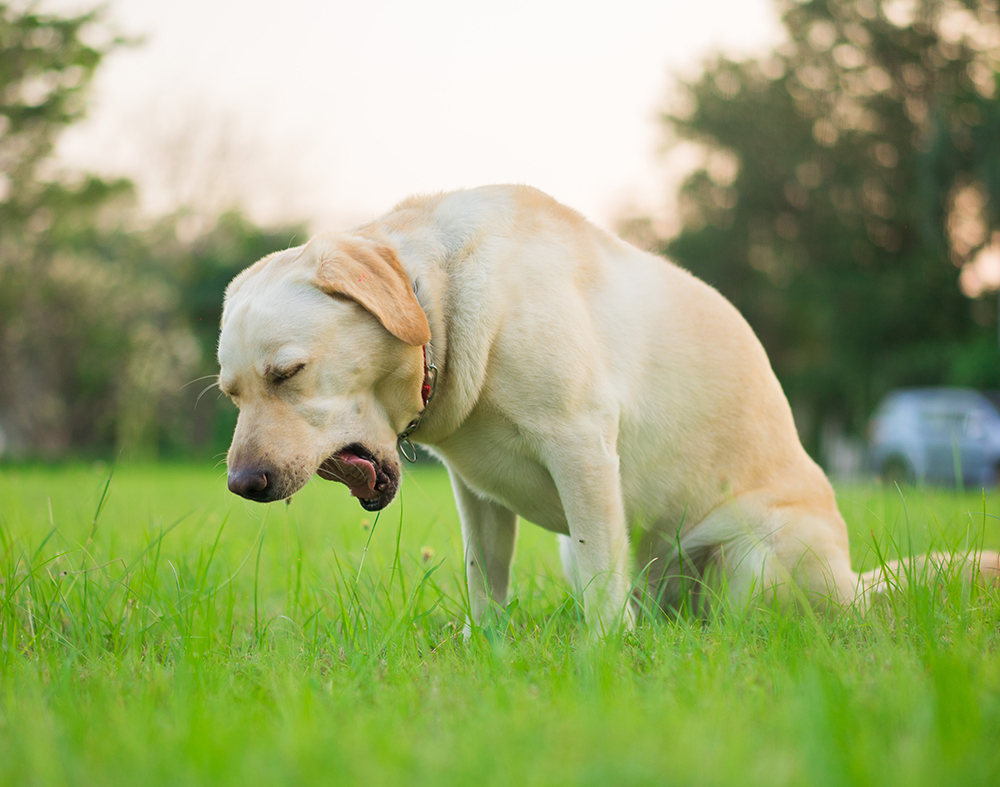
What Is the Cough Like?
The dry cough can last throughout the day but tends to get worse at night. Dogs may also present with watery eyes and a runny nose.
Occasionally, kennel cough can progress to more severe signs of lethargy, inappetence, or even difficulty breathing and a fever. The most severe signs require veterinary treatment as soon as possible.
Diagnosis
Most of the time, a vet can diagnose kennel cough based on a dog’s history and exam. If signs are mild, they may start treatment right away to see how the dog responds. More severe cases may require further diagnostics, such as blood work and X-rays to rule out other causes of coughing. Further testing of respiratory secretions may be able to identify common causative agents.
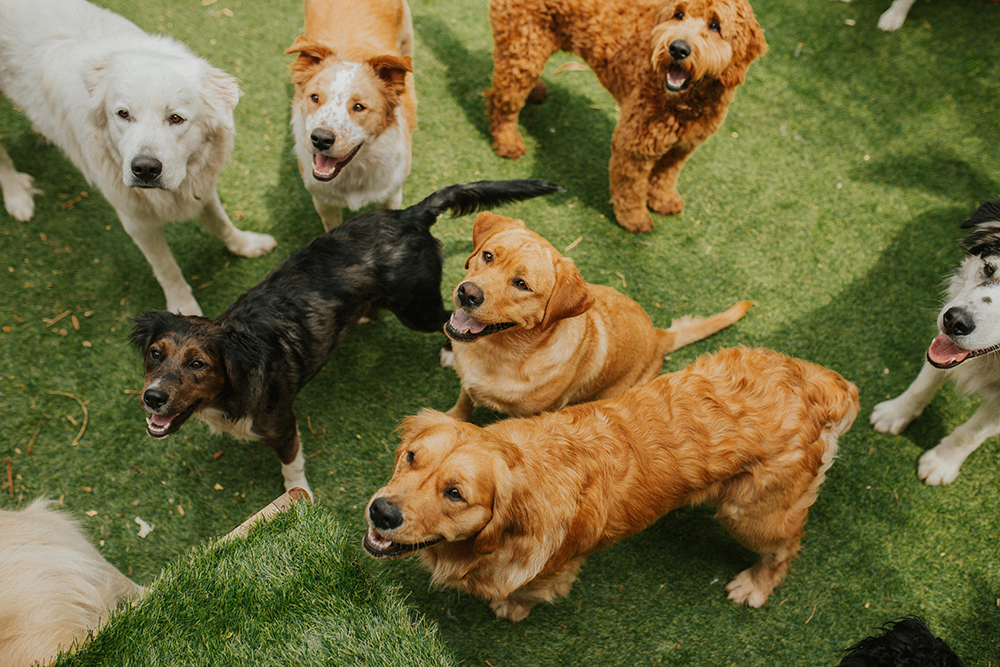
Treatment
Kennel cough will often go away on its own within a couple of weeks, but dog owners and vets alike typically try to speed up the process to give the pups relief. Mild cases may respond to rest and putting a humidifier in your home. More serious cases may be treated with antibiotics, cough suppressants, and anti-inflammatories.

Overview of Collapsing Trachea
A collapsing trachea is the other culprit behind a goose-honking cough. Rather than coming from an infectious agent, it’s due to a dog’s own anatomy degenerating with age.
The trachea is the major windpipe of the throat, bringing air to the lungs. It is a rigid structure made up of cartilaginous rings. These may weaken with age, enabling the near-circular tube to squish or collapse when a dog breathes in. This limits the volume of incoming air and can create inflammation and a honking cough.
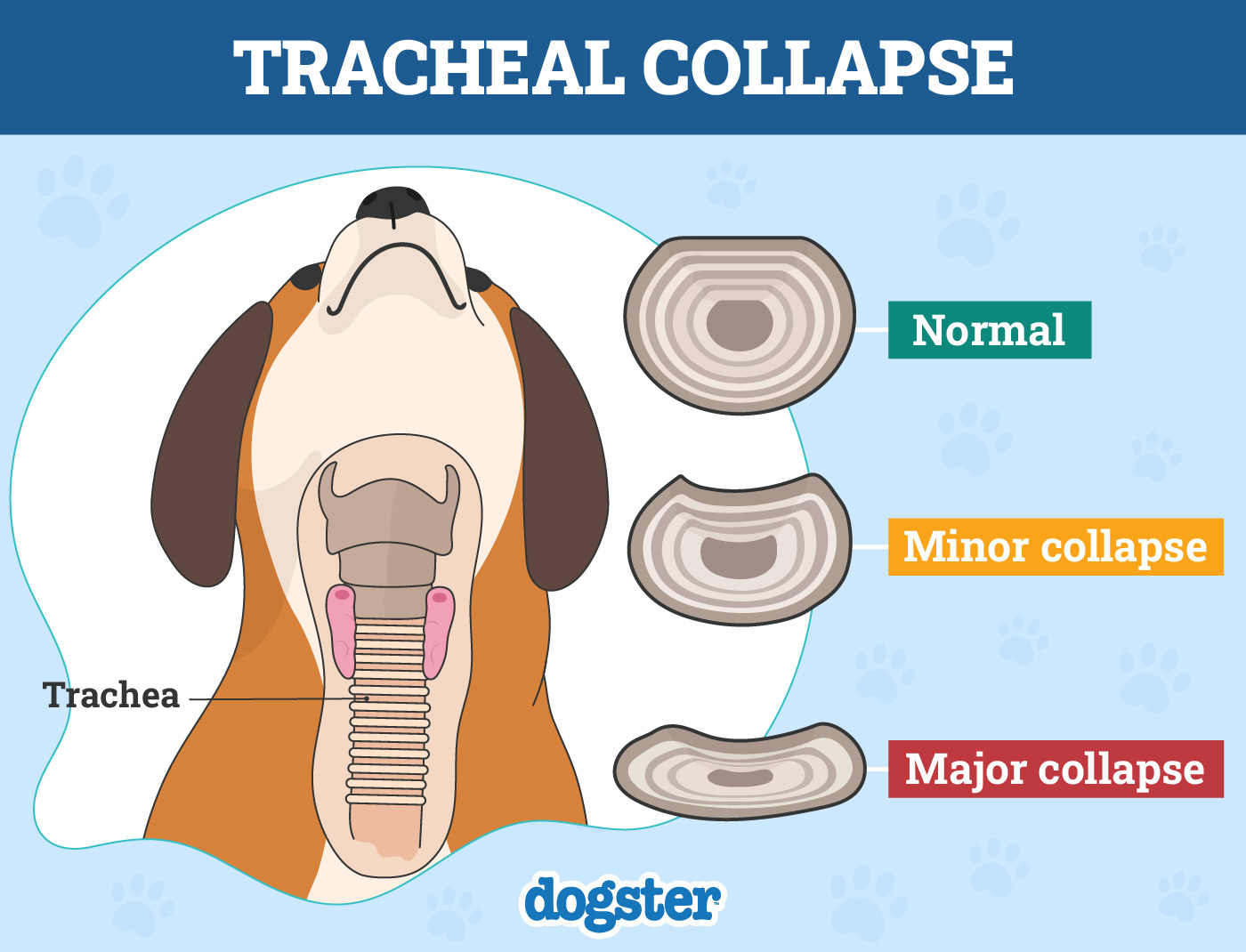
What Is the Cough Like?
A collapsing trachea creates a dry cough similar to kennel cough but at fairly strategic times. When a dog is calmly breathing, they can often pull in enough air without an issue, but when they get excited or stressed, thus increasing their respiratory rate, they may cough. Dogs with tracheal collapse may also cough when pulling on a collar, with exercise, and in an environment of increased heat or humidity. This is a long-term issue that generally gets worse.
Diagnosis
Most of the time, tracheal collapse can be diagnosed via exam, but vets will often do bloodwork and imaging to rule out other causes. Bronchoscopy or fluoroscopy may be done to see the trachea in action to get a definitive diagnosis.
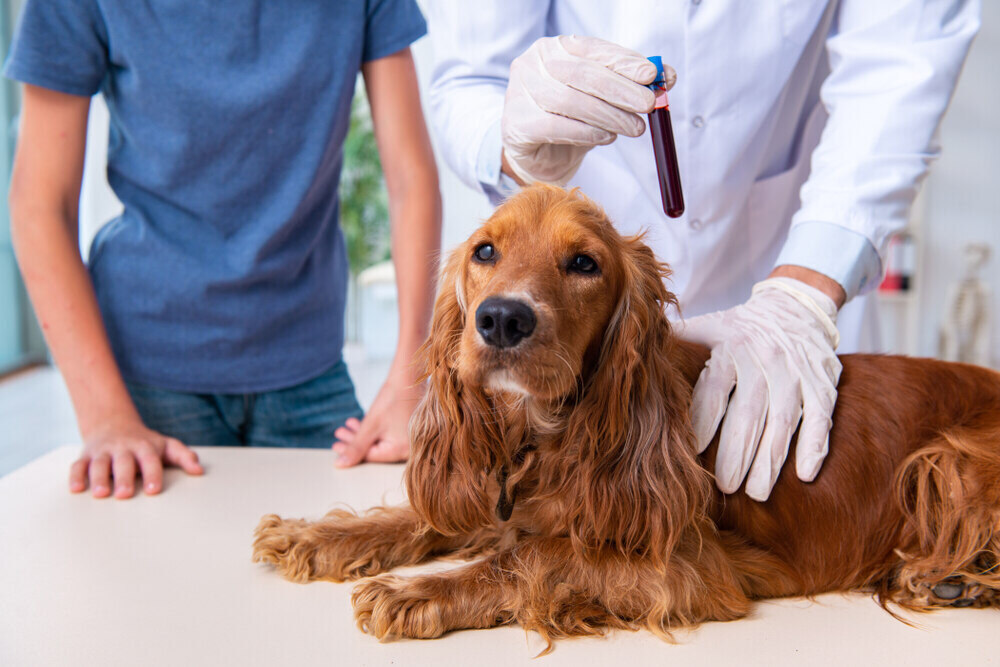
Treatment
This condition gets worse with time, and rather than be cured, it is often just managed. Most dogs respond fairly well to anti-inflammatories, cough suppressants, or bronchodilators as needed. Lifestyle changes, such as switching from a leash to a harness, decreasing stress and excitement, and not exercising in the heat and humidity, can also help.
Surgery is an option for severe cases but has a variable outcome, so be sure to discuss the pros and cons if you’re considering this pathway for your dog with collapsing trachea.

How Do You Know If Your Dog Has a Collapsed Trachea or Kennel Cough?
The cough for both of these issues sounds surprisingly similar, so just basing a diagnosis on the sound of the cough won’t get you anywhere. Instead, look at things like how long the cough has been going on, when it’s the worst, and whether it’s getting better.
Also, these aren’t the only two causes of coughing in dogs; things like heart failure and respiratory infections can also have this sign, so get your pup checked out by a vet.
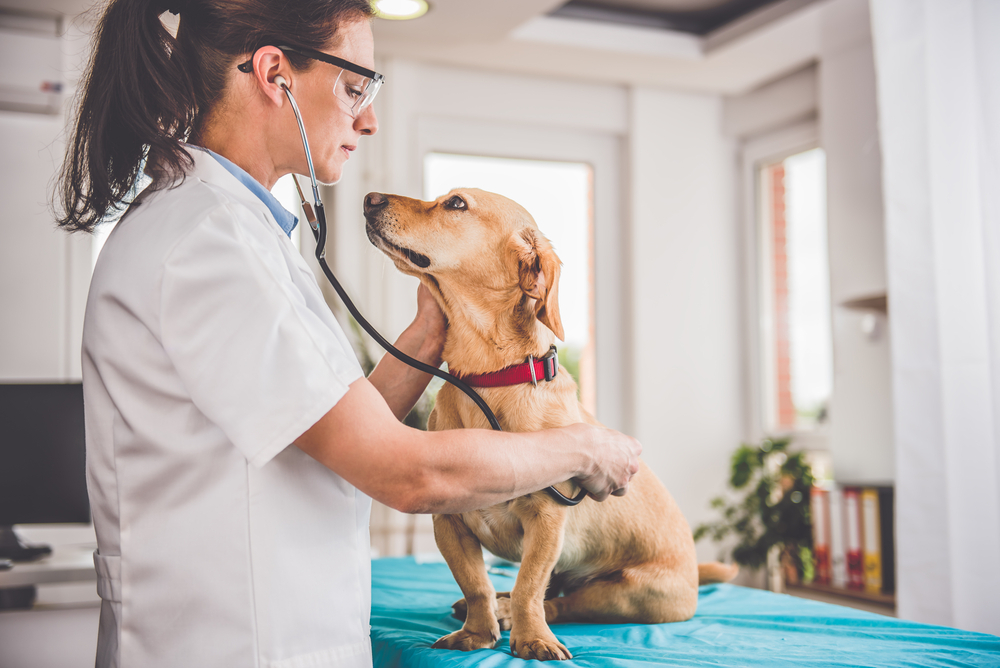
What Do You Do If Your Dog Is Coughing?
Any cough that lasts over a couple of days, gets worse, or has other signs should be seen by a vet. Again, kennel cough and a collapsing trachea are just two possibilities, so get your veterinarian’s help in determining the cause.
Be ready to provide help in the form of personal information so your vet can get to a diagnosis faster. Know things like how long your dog has been coughing, if it’s been getting better or worse, what makes the cough worse, and if there are any other signs, such as lethargy, not eating, or difficulty breathing.
From there, follow your vet’s recommendations. That may mean giving medication or monitoring your dog at home. It may also mean making changes to your pet’s everyday routine so they can be calmer and more relaxed, walking with a harness, or getting them vaccinated to help prevent the issue from recurring later.
Did you know you can speak to a veterinarian without having to travel? Just head over to PangoVet. It's our online service where you can talk to a vet online and get the advice you need for your pet — all at an affordable price!

Conclusion
Kennel cough and a collapsing trachea produce similar dry coughs at first, but the similarities start to diverge from there. One tends to get better over time, while the other only gets worse, especially without implementing management techniques. No matter the cause, see your veterinarian to help you with the diagnosis and a treatment plan to help your dog’s cough.
Featured Image Credit: GoodFocused, Shutterstock


